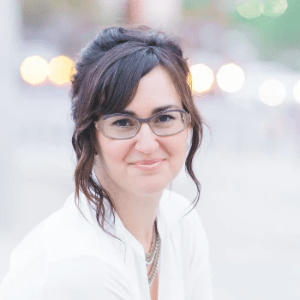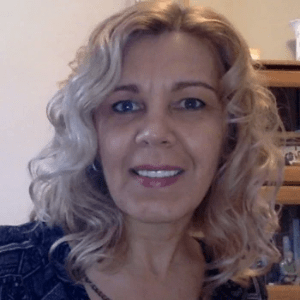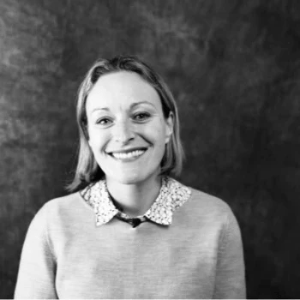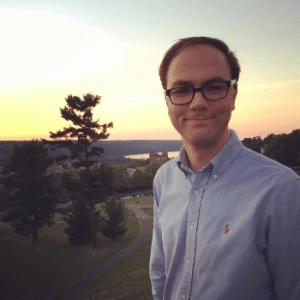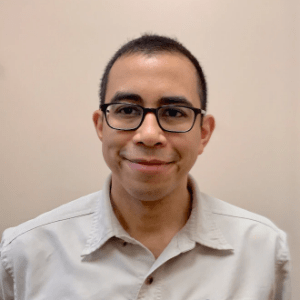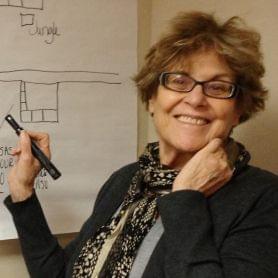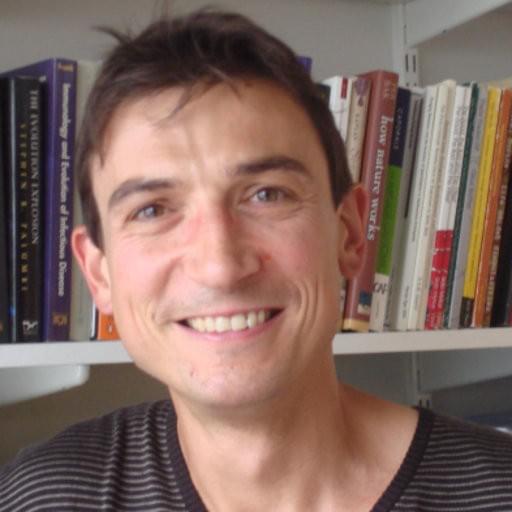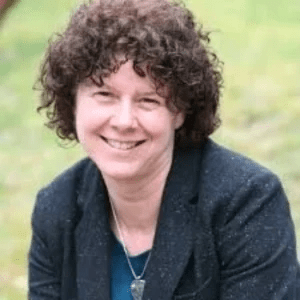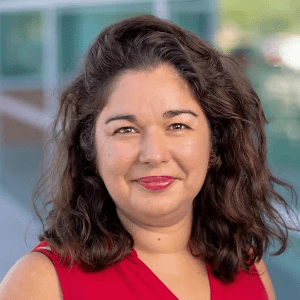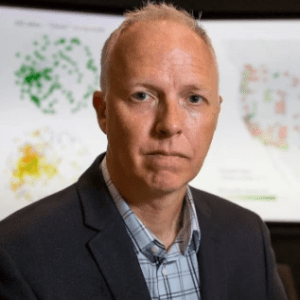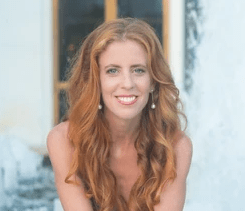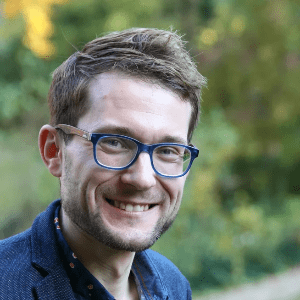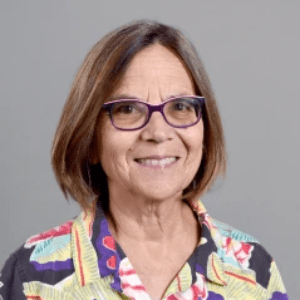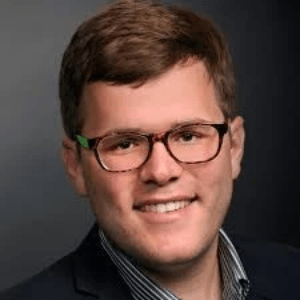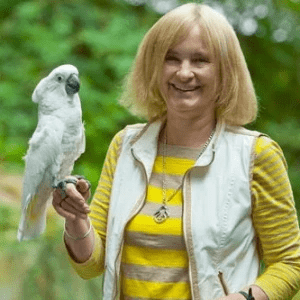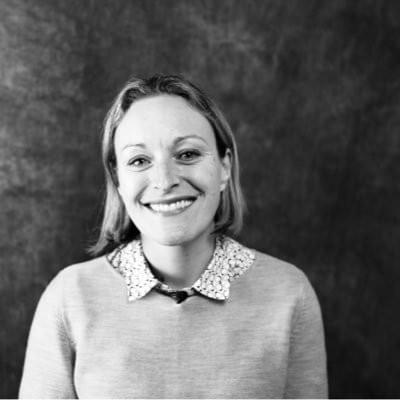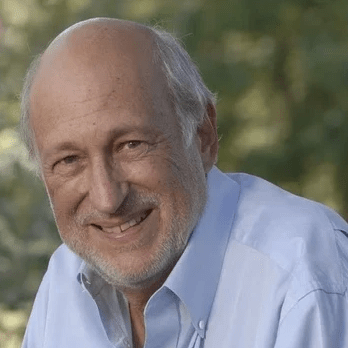

Discover Interdisciplinary Cooperation at ASU
ASU Interdisciplinary Study of Cooperation Winter School
How to be a part of the ASU ISC Winter School
1Apply
Submit your application and request a letter of recommendation from your advisor before Oct 11, 2019.
2Register
If you are accepted into the winter school (you will hear by Oct 18), you will register and have the opportunity to apply for financial assistance.
3Prepare
Create a poster about your work and do background reading
(up to 6 hours).
4Attend
Learn from leaders in cooperation theory through lectures and tutorials; meet students who share your interests.
Lecturers
Lecturers provide extensive training to students during the Winter School

Athena Aktipis
Cooperation across systems
Athena Aktipis is an Assistant Professor in the Department of Psychology at Arizona State University, the Director of the Interdisciplinary Cooperation Initiative at ASU and co-Director of The Human Generosity Project. She studies cooperation across systems from human sharing to cancer. She is also the chair of the Zombie Apocalypse Medicine Alliance; and host of the new podcast, Zombified. Learn more about Dr. Aktipis here.

Lee Cronk
Cultural and biological influences on cooperation
Lee Cronk, a Professor of Anthropology at Rutgers University in New Brunswick, New Jersey, and is co-director of the Human Generosity Project. Dr. Cronk is the author of several books including Meeting at Grand Central: Understanding the Social and Evolutionary Roots of Cooperation. Cronk maintains research interests on such topics as parenting, signaling, and the relationship between culture and behavior. Learn more about Dr. Cronk here.

Aurora Nedelcu
The evolution of multicellularity and major transitions
Aurora Nedelcu is a Professor of Biology at the University of New Brunswick. Her research centers on understanding the evolution of cooperation in the transition to multicellularity , including the evolution of complexity, cell differentiation, programmed death, and many other topics. She uses experimental and theoretical methods across many levels of biological organization (including genes, genomes, cells, individuals, and groups) and bridges many fields including genetics/genomics, molecular, cell and developmental biology, ecology and evolution. Learn more about Dr. Nedelcu here.

Nichola Raihani
Mechanisms that maintain cooperation
Nichola Raihani is a Professor at University College London in the Department of Experimental Psychology. She studies mechanisms that maintain cooperation in interactions where partners may otherwise be tempted to exploit one another, working on both humans and non-humans. Raihani studies these mechanisms as well as the ecological causes and evolutionary consequences of individual variation in cooperation. Learn more about Dr. Raihani here.
Speakers
Speakers give talks and lead tutorial sessions during the Winter School

Arvid Ågren
Genomic conflict and social evolution
Arvid Ågren is an evolutionary biologist studying the causes and consequences of genomic conflicts. He is currently a Wenner-Gren Fellow at Harvard at the Department of Organismic and Evolutionary Biology at Harvard University. Learn more about Dr. Ågren here.

Gerry Carter
Cooperation and social networks in vampire bats
Gerry Carter is an Assistant Professor at The Ohio State University who studies cooperation and social networks in vampire bats. His most recent work tracks the emergence of the first grooming and food-sharing interactions among previously unfamiliar bats. How do strangers eventually choose, develop, and maintain long-term cooperative relationships? You can read more about his research here.

Kathryn Coe
Cooperation and conflict in the family
Kathryn Coe, PhD, is a Professor and Lilly Scholar in the Social and Behavioral Sciences Division in the Department of Public Health at Indiana University-Purdue University, Indianapolis. She has done pioneering theoretical work on the theory of ancestor-descendant conflict, which extends Hamilton's rule, incorporating cultural transmission and parental manipulation into a framework that explains cooperation and conflict in multi-generational families. Her doctoral degree is in cultural anthropology and evolutionary biology. Her research interests are broad, incorporating both chronic disease (breast cancer) and infectious disease (parasite infections, roundworm in particular, in children), and the inter-relationship between culture and health.

Regis Ferrier
Cooperation in fluctuating environments
Regis Ferrier works at the intersection of ecology and evolution as applied to cooperation. He uses mathematical modeling to understand the evolution of cooperation at the gene, cell, organism and population levels. He also works on life history evolution, the evolution of species interactions; as well as the eco-evolutionary responses of populations, and communities and ecosystems to environmental change. Dr. Ferrier is also developing the CNRS-ENS Ecotron in Paris, in a partnership with Biosphere 2 at the University of Arizona, to promote next-generation large-scale experiments on complex ecological systems under highly controlled environmental conditions.

Jennifer Fewell
Division of labor and cooperation in insect societies
Jennifer Fewell is a President’s Professor and faculty leader for the Organismal, Integrative and Systems Biology Group in the School of Life Sciences. Her research centers around the organization and evolution of insect societies. She is particularly interested in the topics of work organization and the emergence of the division of labor in social groups. Fewell also studies the roles of self-organization and selection in shaping social cooperation. Learn more about Dr. Fewell here.

Angelo Fortunato
Novel model organisms for studying cellular cooperation
Dr. Fortunato is an Assistant Research Professor at Arizona State University. He is interested in sociobiology and he is working to integrate evolutionary and cancer biology fields to study cancer evolution. He received his Ph.D. in Ecology and Evolutionary Biology from Rice University, Houston, Texas, and a second Ph.D. in Experimental and Clinical Oncology, from University of Florence, Italy. Dr. Fortunato has an international scientific experience acquired in several American and European laboratories. He is working across classical biology field boundaries using various model organisms, cell lines, and clinical cancer specimens both in the laboratory and in the field. He contributed, among other things, to the development of Dictyostelium discoideum as model organism in social evolution, to the building of the first systematic map of genetic interactions for any animal using Caenorhabditis elegans, and to the investigation of the role of ion channels in cancer biology. Currently, he is working on the development of new model organisms in cancer research and sociobiology (Placozoa, sponges, flatworms and comb jellies), and he is working on human breast cancer genetic analysis.

Tamar Kugler
Trust, cooperation and emotions in decision making
Tamar Kugler is an Associate Professor in the Eller College of Management at the University of Arizona, Tucson. She uses economic games to look at the role of emotions and trust in cooperation and decision making more generally. She also works on interactive decision-making, group decision-makingand intergroup conflict.

Shade Shutters
Cooperation in practice and policymaking
Shade Shutters is a complexity scientist who uses various computational and data-intensive methods to (1) Understand fundamental aspects of social dilemmas across all scales of life; (2) Develop a deeper understanding of social dynamics and complex systems to create solutions to pressing societal issues, particularly in urban systems; and (3) Work with practitioners/policy-makers to design decision tools, implement solutions, and effect change. He is currently a Research Scientist in the Global Security Initiative at ASU. Learn more about Dr. Shutters here.

Jessica Phillips-Silver
The role of rhythm and music in human cooperation
Jessica Phillips-Silver is currently an associate researcher in the Department of Neuroscience at Georgetown University. Jessica conducts research on entrainment in music and movement, with interests in typical development as well as groups of individuals who are blind or deaf; tone-deaf or beat-deaf. She has examined what it means to feel the beat in music: how rhythmic entrainment develops in infancy, what defines the musical disorder beat deafness, how sensory deprivation and cortical plasticity impact rhythm perception, and the sensorimotor brain circuit that supports connection and cooperation through feeling the beat. She also studies the development of executive functioning in early childhood and the role of music and rhythm in cooperation and social interaction.

Arunas Radzvilavicius
Mathematical modeling of cooperation across systems
Arunas L Radzvilavicius is a mathematical modeler at the University of Pennsylvania and a visiting researcher at ASU, with degrees in theoretical physics and evolutionary biology. Arunas has worked on theoretical aspects of cooperation in major evolutionary events like the origins of complex cell and multicellularity. He is now investigating altruism, social norms and moral emotions in human societies. Learn more about Dr. Radzvilavicius here.

Joan Silk
The evolution of social behavior in primates
Joan Silk studies the evolution of social behavior in primates, especially the behavioral and reproductive strategies of female baboons. She recently initiated a comparative study of the structure and function of close social bonds in four baboon species (anubis, hamadryas, gelada, and chacma). In particular, Silk is interested in questions that explicitly link studies of nonhuman primates to humans. Silk is also working with chimpanzees and children to understand the phylogenetic origins and ontogenetic development of prosocial preferences. learn more about Dr. Silk here.

Roger White
Cooperation and cheating in markets
Roger White is an Assistant Professor in the W. P. Carey School of Business. His studies the incentives and institutions that maintain the viability of markets. He uses big data to investigate fraud and other forms of cheating, as well as the roles of regulation and communication in maintaining cooperation. Learn more about Dr. White here.

Polly Wiessner
Culture, cooperation and traditional institutions
Polly Wiessner is a Professor of Anthropology at the School of Human Evolution and Social Change, Arizona State University, a Research Professor at the University of Utah and a member of the National Academy of Sciences. Her recent work has been on the anthropology of the night: how firelight conversations transmit essential information on kinship connections, social networks, sharing and other social institutions to promote cooperation. Her second field site is among the Enga of Papua New Guinea where she has conducted 30 years of ethnohistorical research on exchange, ritual and warfare. She is currently studying the breakdown of traditional cultural institutions with the introduction of new technology and rapid economic change and how the Enga are applying restorative justice based to rebuild communities and maintain harmony through reciprocity. Wiessner has authored, co-authored or edited four books. Learn more about Dr. Wiessner here.
Tutorials
Students will have opportunities to work closely with instructors during multiple tutorial sessions throughout the week.

Cooperation Databank meta-analyses
Taught by Giuliana Spadaro (Amsterdam Cooperation Lab)
The Amsterdam Cooperation Lab has recently developed the Cooperation Databank (CoDa) – a databank that contains an annotation of the entire history of lab and field research on human cooperation using social dilemma paradigms (~ 3,000 studies, published in English, Chinese, and Japanese). The CoDa platform involves a semantic-based search tool for people to conduct a targeted searched of these studies and compute their own on-demand meta-analyses. At this workshop, developers of the Cooperation Databank (CoDa) will give a tutorial and exercise in using the platform, and participants will have a hands on experience in doing in their own meta-analyses of cooperation literature and learn how this can be used to enhance their own research programs.

Accessing and analyzing big data
Taught by Roger White
In this tutorial, students will learn how to access and analyze existing data from public and private business-related sources to answer questions about cooperation and cheating in markets. The tutorial will cover a variety of data sources, including the Wharton Research Data Services (WRDS) which is a source of big data often used in business schools to investigate human behavior in markets.

Mathematical modeling of public goods games
Taught by Arunas Radzvilavicius
From managing fisheries to tackling climate change, human interactions can be modeled as public goods games – everyone is better off if the whole society contributes, but because cooperation is costly, individuals are tempted to act selfishly. In this computational modeling tutorial, we will build an evolutionary public goods game model illustrating the infamous ‘tragedy of the commons’. We will look for solutions to this collective action problem by modifying the model to include multilevel selection, conditional cooperation strategies or peer punishment.

Rhythm and music as a tool for cooperation
Taught by Jessica Phillips-Silver
Rhythm is a major tool for human connection and cooperation, and the benefits go far beyond our enjoyment of music and dance. From infancy, rhythm integrates sound with movement using a brain circuit for anticipation, timing and action (the Auditory Dorsal Stream). This brain circuit enables rhythmic entrainment, which refers to synchronization in time (to the beat) and in affect (shared emotion). Rhythmic entrainment facilitates bonding and prosocial behavior including cooperation. Examining rhythm as a tool for connection can help us to understand how the human brain evolved for cooperation, and what needs to be done to foster it further.

Evolutionary modeling of genetic conflict
Taught by Arvid Ågren
For the past half-century, the gene’s-eye view of evolution, also known as selfish gene theory, has been an indispensable tool in the study of conflict and cooperation. In particular, it is a powerful heuristic to develop new hypothesis about the genetics of social evolution. However, intuition can only take us so far. This tutorial will focus on translating verbal ideas into simple population genetic models to test the logic of an argument.

Adaptive Dynamics Modeling for Cooperation
Taught by Regis Ferrier
This tutorial will provide a short introduction to adaptive dynamics modeling and show student how to apply it to the evolution of cooperation.

Using social network analysis to understand patterns of social cooperation
Taught by Gerry Carter
Cooperative interactions do not usually occur in isolated pairs or in completely homogenous populations; they are typically embedded in highly structured and nonrandom networks of individuals. How does one test hypotheses about patterns of cooperation observed in a social network? In this tutorial, we will answer this question by reviewing permutation tests that control for social network structure in different ways

Interactive Decision-Making in the Laboratory
Taught by Tamar Kugler
In this tutorial we will learn how to use interactive decision settings to measure cooperative, collaborative and competitive behavior in a laboratory setting. We will participate in a series of interactive games that are designed to model real-word problems such as trust games, social dilemmas, principal-agent games, gift exchange games, etc. We will discuss how to analyze behavior from such games, and how they can be used to answer theoretical questions on cooperation and competition.

Social evolution on a Petri dish
Taught by Angelo Fortunato
In this tutorial, students will have the opportunity to explore how cellular cooperation can be studied using model organisms including placozoa (which engage in social eating), sponges (which appear to be resilient to cellular cheating) and others. The tutorial will include training in standard microbial culture methods and lab culture of the organisms, use of dissecting and inverted microscopes, and sample preparation for microscopic observation. Students will be observing the organisms under the microscope using bright field, phase contrast and differential interference contrast. We will also cover use of vital staining as well as image and video recording.

Cooperation and coordination games
Taught by Lee Cronk
This tutorial offers students a chance to learn about (and play) several cooperation and coordination games that can be played in the classroom and/or used for studying cooperation and coordination in the lab.

Leveraging strategic reasoning in the classroom
Taught by Athena Aktipis
Students in this tutorial will play several cooperation-conflict games designed by Aktipis for classroom use. The first is a parent-offspring conflict game, in which players form a family and have the opportunity to share resources and/or inflict costs through demanding resources. The second is a game about reproduction and cultural transmission in which players create a dynasty of bunnies. These games are designed to teach complex topics through leveraging interpersonal strategic reasoning.

Restorative justice case studies
Taught by Polly Wiessner
Many countries today are adopting plural legal systems composed of formal legal systems imported from western industrial countries and customary legal systems that operated in the past. The former has formal courts, written laws, strict rules of evidence, police punishment and and prisons. Customary law is based on values and practices used to settle disputes with an emphasis on restorative justice, making up for damage done and preserving harmony between communities. This tutorial will review difficult cases from witchcraft to domestic violence to tribal wars. Students will be asked to guess to which court the infraction was brought formal or customary and then to form juries to decide on settlements. Student settlements will be compared to those of the magistrates in the customary courts and we will discuss goals, norms and values underlying the indigenous decisions.
Travel, lodging and logistics
Travel
Students in the summer school should fly in and out of Phoenix Skyharbor Airport (PHX). Travel grants will be available for students in need to help cover the costs for domestic travel (up to $300 US) and international travel (up to $500 US). Students should plan to arrive the day before the winter school begins (Jan 5) and leave either the day after it ends (Jan 11) or the following day (Jan 12) if they wish to join the Grand Canyon Tour (see below). Do not make travel arrangements until you have received an official acceptance to the winter school.
Lodging
Lodging will be provided at double occupancy for all students. This is included in the cost of registration.
Registration
Registration for the winter school is heavily subsidized by the Interdisciplinary Cooperation Initiative at ASU and the President's Office. The cost to students for registration, which includes attendance in all sessions, and tutorials, as well as lodging and most meals, is $550 US. Registration grants are available for students in need to cover an additional $300 US of the registration cost.
Optional Grand Canyon Tour
Students will be invited to join an optional day tour of the Grand Canyon at a small additional cost on January 11th. This tour is operated by a professional tour company and will include several stops in Northern Arizona.
Scientific Planning Committee
The Scientific Planning Committee for the ASU Interdisciplinary Cooperation Winter School

Athena Aktipis
Psychology, ASU
Aktipis is the Director of the Interdisciplinary Cooperation Initiative at ASU and the co-Director of the Human Generosity Project . She is a lecturer in the winter school as well.

Lee Cronk
Anthropology, Rutgers U
Cronk is the co-Director of the Human Generosity Project and a lecturer in the winter school.

Nichola Raihani
Psychology, UCL
Raihani is a Professor and author. She is a lecturer in the winter school as well as being on the scientific planning committee.

Michael Hechter
Political Science, ASU
Hechter is the Associate Director of the Interdisciplinary Cooperation Initiative at ASU and assisted with planning this winter school.
AktipisLab © 2022

